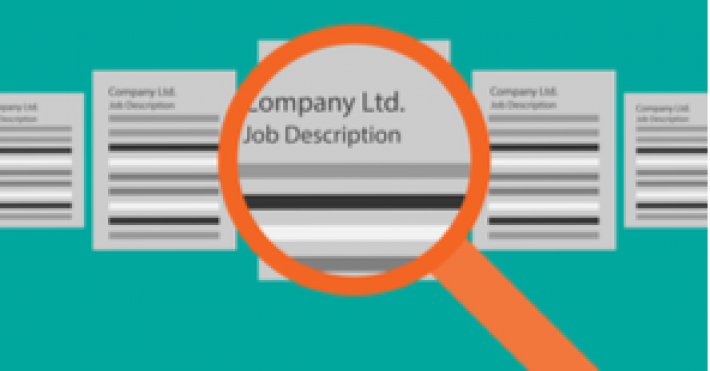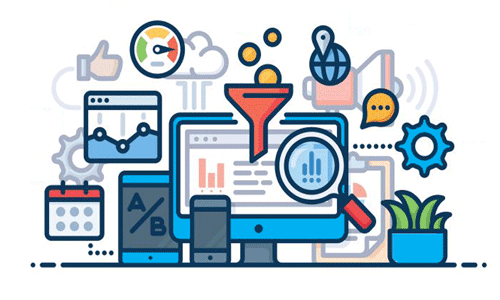Why Web Data Scraping Jobs?
Throughout the years of being within the web scraping industry, Web Data Scraping Jobs stands out as being one among the foremost wanted information online. As per a survey, 51% of employed adults who check out new jobs are trying to find new work opportunities, and 58% of job seekers search for jobs online. In another word, this market is large. This data can be helpful in many ways like:
- Collecting data for analyzing job trends and therefore the market.
- For fueling job aggregator sites with fresh job data.
- Staffing agencies scrape job boards to keep job databases up-to-date.
- Tracking competitor’s open positions, compensations, benefits decide to get yourself a leg up the competition.
- Finding leads by pitching your service to companies that are hiring for an equivalent.
And trust me, these are only the tip of the iceberg. With that being said, scraping job postings isn’t the simplest thing to do.
Challenges For Web Data Scraping Jobs
First and foremost, you will need to decide on the source to extract this information. There are two main sorts of sources for job data:
- Every company, big or small, features a career section on their websites. Web Data Crawling Jobs those pages daily can offer you the foremost updated list of job openings.
- Major job aggregator sites like Craiglist, LinkedIn, Indeed, Monster, Naukri, ZipRecruiter, Glassdoor, SimplyHired, reed.co.uk, Jobster, Dice, Facebook jobs, etc.
Next, you will need a web scraper for any of the websites mentioned above. Large job portals are often extremely tricky to scrape because they’re going to nearly always implement anti-scraping techniques to stop screen scraping bots from collecting information off of them.
A number of the more common blocks include IP blocks, tracking for suspicious browsing activities, honeypot traps, or using Captcha to stop excessive page visits. On the other hand, the company’s career sections are usually easier to scrape. Yet, as each company has its web interface/website, it requires fixing a crawler for every company separately. Such that, not only is the upfront cost is high but it’s also challenging to take care of the crawlers as websites change very often.
What Are The Choices For Job Data Scraping
There are a couple of options for a way you’ll scrape job listings online.
-
Hiring A Job Data Scraping Service:
These companies provide what’s generally referred to as “managed service”. Some well-known web data scraping jobs vendors are Jobspikr, PromptCloud, Datahen, Propellum, Data Hero, Scrapinghub, etc. they’re going to take your requests in and find out whatever is required to urge to get the work done, like the scripts, the servers, the IP proxies, etc. Data is going to be provided to you within the format and frequencies required.
Web data scraping jobs services usually charge based on the number of internet sites, the quantity of knowledge to fetch, and therefore the frequencies of the crawl. Some companies may charge additional for the number of knowledge fields and data storage. Website complexity is, of course, a serious factor that would have affected the ultimate price. For each website setup, there’s usually a one-off setup fee and monthly maintenance fee.
Pros:
- Highly customizable and tailored to your needs.
- No learning curve. Data is delivered to you directly.
Cons:
- Long term maintenance costs can cause the budget to shoot up.
- The costs are often high, especially if you’ve got tons of internet sites for web data scraping jobs.
- Extended development time as each website will have to be found out in its entirety (3 to 10 business days per site).
-
In-house Web Scraping Setup:
Doing web scraping in-house together with your tech team and resources comes with its perks and downfalls.
Pros:
- Fewer communication challenges, faster turnaround.
- Complete control over the crawling process.
Cons:
- Legal risks. Web data scraping jobs is legal in most cases though there are a lot of debates going around and even the laws have not explicitly enforced one side or the opposite. Generally speaking, public information is safe to scrape and if you would like to be more cautious about it, check and avoid infringing the terms of service of the web site. That said, should this become a priority, hiring another company/person to try to do the work will surely reduce the extent of risk related to it.
- Less expertise. Web data scraping jobs may be a niche process that needs a high level of technical skills, especially if you would like to scrape from a number of the more popular websites or if you would like to extract an outsized amount of knowledge daily. ranging from scratch is hard albeit you to hire the professionals, whereas data service providers, also as scraping tools, are expected to be experienced with tackling the unanticipated obstacles.
- Maintenance headache. Scripts need updating or maybe rewritten all the time as they’re going to break whenever websites update layouts or codes.
- Infrastructure requirements. Owning the crawling process also means you will have to urge the servers for running the scripts, data storage, and transfer. There’s also an honest chance you will need a proxy service provider and a third-party Captcha solver. The method of getting all of those in a situation and maintaining them daily is often extremely tiring and inefficient.
- Loss of focus. Why not spend long hours and energy on growing your business?
- High cost.
-
Employing A Web Pages Data Scraping Tool
Technologies are advancing like anything, web data scraping jobs can now be automated. There are many web scraping software that’s designed for non-technical people to fetch data from the internet. These so-called web scrapers or web extractors transverse the website and capture the designated data by deciphering the HTML structure of the webpage. you will get to “tell” the scraper what you would like through “drags” and “clicks”. The program learns about what you would like through its built-in algorithm and performs the scraping automatically. Most scraping tools are often scheduled for normal extraction and integrated into your system.
Pros:
- Non-coder friendly. Most of them are relatively easy to use and may be handled by people with little or no technical knowledge. If you would like to save lots of time, some vendors offer crawler setup services also as training sessions.
- Budget-friendly. Most web scraping tools support monthly payments as small as $60 ~ $200 per month.
- Fast turnaround.
- Scalable. Easily supports projects of all sizes, from one to thousands of internet sites. Scale-up as you go.
- Low maintenance cost. As you will not need a troop of tech to repair the crawlers anymore, you’ll easily keep the upkeep cost in restraint.
- Complete control. Once you’ve learned the method, you’ll find out more crawlers or modify the prevailing ones without seeking help from the tech team or service provider.
Cons:
- Compatibility. All web data scraping jobs tools claim to hide sites of all types but the reality is, there’s never going to be 100% compatibility once you attempt to apply one tool too many websites.
- Learning curve. counting on the merchandise you select, it can take a while to find out the method.
- Captcha. Most of the online scraping tools out there cannot solve Captcha.
Extract Data from Multiple Pages – In Conclusion
To sum up, there’s surely going to be pros and cons with any of the choices you select. the proper approach should be one that matches your specific requirements (timeline, budget, project size, etc). An answer that works well for businesses of the Fortune 500 might not work for a university student. That said, weigh in on all the pros and cons of the varied options, and most significantly, fully test the answer before committing to at least one.
Ready to streamline your job data scraping process and stay ahead in the competitive job market? Jobspikr offers a seamless way to access fresh, structured job data directly from the web. Sign up today and empower your business with actionable insights.





